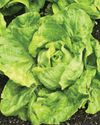
Have you ever tried goat meat? If not you should. The U.S. Department of Agriculture reports that meat from goats is lower in fat and cholesterol than beef, chicken and pork, and it also has about the same amount of protein.
Goat meat falls into two categories.
Cabrito, also known as capretto, is the meat from milk-fed kids. Chevon is the flesh of older kids and mature goats.
A typical kid, 12 to 20 weeks old, yields 12 to 25 pounds of tasty meat, while a 100-pound goat, 12 to 18 months old, yields 40 to 50 pounds. Chevon from older goats can be gamy, so unless you prefer stronger-tasting meat for Caribbean dishes and curries, it's best to slaughter goats while they're young Do some research before buying goats to raise for meat. Goats are a social species; you should keep more than one. A solitary goat is unhappy and won't eat or gain well, so it's best to have at least two goats.
Goats also require adequate shelter, good fences, quality food, regular deworming, hoof trimming and certain vaccinations depending on where you live. There's a lot to learn with goats, but once you've mastered it, they're relatively easy to keep.
RAISE GOATS RIGHT
If you prefer cabrito and also like goat milk, or if you want nourishing milk to fatten pigs or chickens, consider adding a few dairy goats to your farm. Doelings (female kids) from milking lines generally fetch a decent price, while bucklings (male kids) can go in the freezer.
Note that most dairy kids aren't as fleshy as meat-breed kids, but they still produce tasty meat. Some breeds such as Kinders are good milkers as well as meat producers.
This story is from the Goat-101-24 edition of Hobby Farms.
Start your 7-day Magzter GOLD free trial to access thousands of curated premium stories, and 9,000+ magazines and newspapers.
Already a subscriber ? Sign In
This story is from the Goat-101-24 edition of Hobby Farms.
Start your 7-day Magzter GOLD free trial to access thousands of curated premium stories, and 9,000+ magazines and newspapers.
Already a subscriber? Sign In

The RISE of Opportunist WEEDS
Be prepared to see increasing changes in weeds we fight, such as poison hemlock and poison ivy, and in the crops we grow.

LIVESTOCK Health
Prepare yourself for how to spot symptoms of illness in your farm animals so that you can get them help before it's too late.

CUT FLOWER Farming
If you're considering growing flowers for sale, brush up on these five key things to know before diving in.

WINTER Survival
Keep your land, animals and yourself in good shape this winter with this helpful advice.

COVERAGE CONCERNS
Avoid common insurance mistakes for rural and hobby farm businesses.

FARMER'S GUIDE Berries
Set the stage for tasty strawberries, blueberries and brambles with these soil-boosting garden tips.

Preconditioning CALVES
Follow our step-by-step guide to get more money for your calves.

Soil Conservation
Often, outside of having a specific problem that needs to be addressed, soil conservation isn't something every farmer readily thinks about. Yet conserving the soil should be at or near the top of every farmer owner or manager's list of concerns because absent the prevention of soil erosion, we have the opportunity for another dust bowl.

Year-Round Lettuce & Salad Mixes
It's easy to think of salad greens as just a spring- or fall-garden crop, but it's possible to enjoy freshly harvested lettuces, mustards and more from your own garden year-round.

Barn Improvements
Days are never long enough for a farmer. From dawn to well into the night, tasks arise that often require immediate action. Having to search for tools or equipment is an enormous time waster and incredibly frustrating when you can't find what you need, especially when you know you have it.